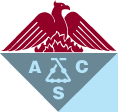
 |
· Search · Contents · Authors · Meeting & Headquarters Info · Help · Copyright & Credits |
CHED 526 |
What's next for kitchen chemistry |
| With support from the Learning Anytime Anywhere Partnership program administered by the US Department of Education, nine ?kitchen chemistry? laboratories were developed and evaluated as replacements for traditional laboratories in a first semester distance learning introductory chemistry course for science majors. The evaluations indicated that, for the type of student who typically succeeds in a distance learning environment, the kitchen chemistry laboratories provide effective alternatives to the traditional laboratories. (1) However, technical and safety limitations threaten to limit the approach to first semester general chemistry. This paper explores the success of the kitchen chemistry laboratories, and considers alternatives that might extend their application to more advanced laboratories. 1. Casanova, R, Civelli, J, Kimbrough, D, Heath, B, and Reeves, J, J. Chem. Ed., 2006, 53, 501-507. |
|
|